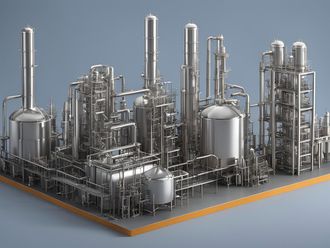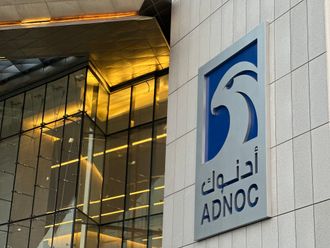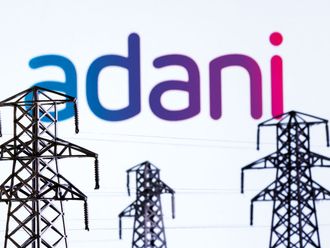News reports suggesting Kuwait's oil capacity reaching a sustainable 3 million barrels per day (bpd) is timely for a country engulfed in political turmoil. The reference is to the storming of the national assembly by tens of angry Kuwaitis demanding the removal of the country's premier. The allegation is the government payment of bribes for some MPs in return for favours.
At any rate, according to oil minister Mohammmad Al Buseiry, Kuwait's oil capacity has recently surpassed 3 million bpd. Still, the minister predicts oil output reaching as high as 4 million bpd by 2020.
Undoubtedly, this represents an extraordinary development and a major way forward for a country suffering from a production capacity not commensurate with its reserves. Kuwait holds just above 7 per cent of the world's proven oil reserves but contributes around 3 per cent of global oil output. In comparison, fellow Gulf Cooperation Council (GCC) member Saudi Arabia contributes some 13 per cent of worldwide oil output while it controls about 19 per cent of proven oil reserves.
Interestingly enough, successive Kuwaiti parliaments have shown little enthusiasm for expanding the country's oil production capacity.
Project delay
A case in point is the delay in approving what is known as the Kuwait Project. The ambitious scheme aims at generating an additional 450,000 barrels per day from four fields located in the north and west of the country. The development requires investment in excess of $8 billion (Dh29.36 billion) over a 20-year period.
The argument centres on a clause in Kuwait's constitution barring foreign ownership of the country's hydrocarbon resources. Nonetheless, Kuwaiti legislators cannot overlook the fact that international oil firms have the necessary know-how for expanding oil and gas output, as evident in the case of Qatar. In fact, Qatar leads the world in production of liquefied natural gas (LNG). Thanks to efforts by international oil firms, the LNG capacity has now reached 77 million tonnes.
A possible positive spill-over is that higher oil capacity and hence revenue potential could revive prospects for implementation of the long-awaited economic reforms, notably the privatisation programme. The scheme includes selling of shares in banks, insurance companies and light industries that the government had purchased through the Kuwait Investment Authority following the collapse of the unofficial stock market in 1982 and the Iraqi invasion in 1990.
Also, the authorities want to privatise certain activities of Kuwait Petroleum Corp besides buses operated by the Kuwait Public Transport Company. Other activities include postal services and ground communications stations as well as X-ray laboratories and security at public hospitals. Not long ago, the authorities succeeded in privatising petrol stations, widely regarded as a successful experiment.
Needless to say, the petroleum sector is exceptionally vital for the well-being of the Kuwaiti economy by virtue of accounting for a hefty 85 per cent of both treasury revenues and total exports.
Diversification
Undoubtedly, this situation making the local economy too dependent on a single source is a worrying one. The best policy calls for using the oil proceeds as a means to diversify away from the petroleum sector. This is happening elsewhere within the GCC. For instance, Qatar has made headway in using its oil wealth to strengthen the role of the services sector such as encouraging diverse sporting activities, the most outstanding of which is Fifa World Cup 2022.
All told, expansion of oil production capacity should provide Kuwait the opportunity to generate the maximum when opportunities arise. Oil prices reached a record $147 per barrel in July 2008, and remain above $100 per barrel.
The writer is a Member of Parliament in Bahrain.












